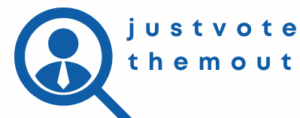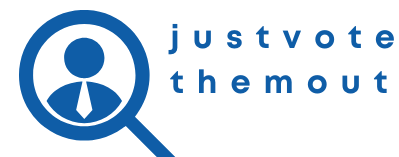In today’s fast-paced world, navigating a career can feel like trying to find your way through a maze blindfolded. A well-crafted career development plan is like that trusty map guiding you through twists and turns. It helps individuals identify their goals, hone their skills, and chart a course toward success.
Table of Contents
ToggleImportance Of Career Development Plans
Career development plans play a crucial role in achieving long-term success. Such plans provide clear objectives that guide individuals through their professional journey. They enhance self-awareness by helping individuals understand their strengths and areas for improvement.
Structured plans focus on skill enhancement and professional growth, ensuring individuals stay competitive in a constantly evolving job market. They allow for strategic planning, making it easier to identify and pursue opportunities that align with personal aspirations. Continuous learning becomes more manageable with defined goals, fostering a culture of self-improvement.
Employees who engage in career development planning report higher job satisfaction and motivation. Studies indicate that organizations supporting these plans see increased employee retention rates. Individuals who follow structured plans often secure promotions faster compared to those without a clear development strategy.
Additionally, career development plans encourage networking and mentorship opportunities. Building meaningful connections can lead to collaborations and open doors for advancement. They also provide a framework for performance reviews, allowing both employees and employers to track progress effectively.
Ultimately, a well-constructed career development plan not only benefits the individual but also contributes to organizational success. Focused development aligns individual goals with organizational objectives, creating a win-win situation for both parties.
Key Components Of A Career Development Plan

A career development plan consists of several essential components that guide individuals in achieving their professional aspirations. Key areas to focus on include goal setting and skills assessment.
Goal Setting
Setting clear and achievable goals forms the foundation of a successful career development plan. Goals should be specific, measurable, attainable, relevant, and time-bound (SMART). For instance, a person may aim to attain a leadership position within two years. Aligning short-term goals with long-term aspirations enhances motivation and commitment. Regularly reviewing and adjusting goals ensures they remain relevant amid changing circumstances. When individuals articulate their goals, they can better prioritize their efforts and resources, leading to more effective professional growth.
Skills Assessment
Conducting a thorough skills assessment is crucial for identifying strengths and areas for improvement. It involves evaluating both hard and soft skills relevant to career aspirations. For example, an employee may identify strong technical capabilities but lack communication skills. This assessment provides insight into existing competencies and guides individuals in selecting areas for further development. Using tools such as self-assessments or feedback from peers helps gather comprehensive insights. Periodic reviews of skills ensure continuous growth, allowing individuals to adapt to evolving job market demands effectively.
Steps To Create A Career Development Plan
Creating a career development plan involves structured steps to ensure individuals navigate their professional paths effectively. The following steps provide a clear approach.
Self-Assessment Techniques
Self-assessment techniques play a vital role in identifying strengths and weaknesses. Individuals can use tools such as personality tests and skill inventories for a comprehensive view. Journaling past achievements helps in recognizing patterns of success and areas for growth. Gathering feedback from peers or supervisors adds valuable perspectives. Utilizing these techniques, individuals gain insights that inform their career goals and development strategies.
Researching Career Options
Researching career options provides clarity on potential paths. Begin by exploring industries aligned with personal interests and skills. Online resources such as job boards and professional networks offer valuable information about market trends and demands. Conduct informational interviews with professionals in desired fields to gather firsthand insights. Attending industry events enhances understanding of various roles and networking opportunities. Effective research leads to informed decision-making and clear direction in the career development process.
Tips For Implementing Your Career Development Plan
Implementing a career development plan requires strategic actions and ongoing commitment. Regular progress reviews and mentorship play crucial roles in this process.
Regular Progress Reviews
Conducting regular progress reviews enhances accountability and motivation. Individuals set aside time to evaluate their progress against established goals. Assessing achievements allows for adjustments to strategies and timelines. Reviewing performance also highlights successes, reinforcing personal growth and commitment. Feedback from peers or supervisors can provide valuable insights, making it easier to refine skills and approaches. Those who track their progress frequently remain adaptable to changing job market demands.
Seeking Mentorship and Guidance
Seeking mentorship and guidance significantly impacts professional development. Mentors provide invaluable knowledge and experience, helping navigate career challenges. Identifying mentors within the industry or organization can lead to tailored advice and networking opportunities. Individuals who engage with mentors often gain perspective on potential career paths and skill development areas to focus on. Establishing these relationships fosters personal growth and encourages exploration of various opportunities within the field. Networking through mentorship generally strengthens connections, opening doors to new possibilities.
A career development plan is an essential tool for anyone looking to navigate their professional journey effectively. By setting clear goals and assessing skills individuals can create a roadmap that not only fosters personal growth but also aligns with organizational objectives. Regular reviews and adjustments keep motivation high and ensure adaptability in a changing job market.
Engaging with mentors and seeking feedback further enhances the development process, opening doors to new opportunities. Ultimately a well-structured career development plan empowers individuals to take charge of their careers while contributing to overall workplace success.



